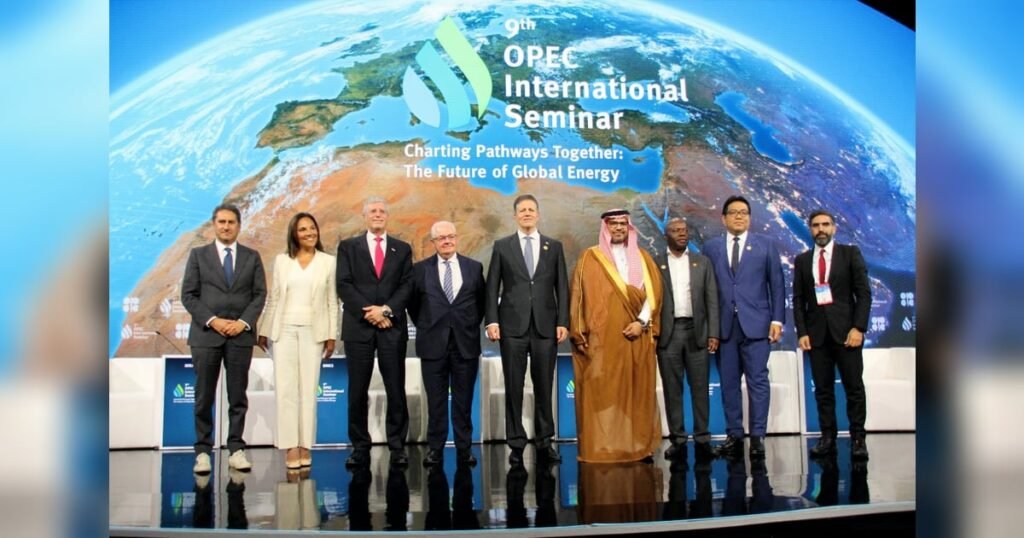A massive $4.3 trillion in global investment will be required by 2030 to meet surging demand for natural gas and support a balanced energy transition, according to Crescent Petroleum CEO Majid Jafar.
Speaking at the 9th Opec International Seminar in Vienna, Jafar warned that the world is heading into a critical phase where all energy sources — including gas, oil and renewables — must be scaled up simultaneously to ensure a just, realistic, and resilient energy future.
Jafar told Opec ministers and top energy executives that the world can no longer afford an either-or strategy that sidelines hydrocarbons in favour of renewables. “The era of renewables growing at the expense of other energy sources is over. We now need an ‘and, and’ strategy,” he said, urging a cohesive global approach to energy planning.
The Crescent Petroleum chief stressed the impact of a “lost decade” of underinvestment in oil and gas infrastructure. While the focus over the past 10 years has been on decarbonisation, the resulting capital shortfalls in the hydrocarbon sector now risk undermining energy security — especially in the Global South, where growth in population, urbanisation and electrification is outpacing supply.
More than 1.2 billion people globally still lack access to reliable electricity, Jafar noted, adding that energy poverty is on the rise in many developing countries. “The energy trap leads to increased coal burning, which undermines both development and climate goals,” he warned, calling for greater empowerment of the Global South to tap into its abundant natural gas reserves.
He cited data from the International Energy Agency showing that global energy demand surged 2.2 per cent in 2024 — well above the average for the past decade. Electricity demand alone jumped 4.3 per cent, fueled by electrification trends and the rise of energy-intensive AI data centres. Natural gas demand outpaced other hydrocarbons last year, growing by 115 billion cubic metres — around 2.7 per cent — compared to an average of 75 bcm annually over the past 10 years.
Jafar pointed to a looming energy challenge posed by the rapid expansion of AI technologies. By 2030, global data centres could consume as much power as Japan’s current total electricity usage. Supporting this surge in demand will require at least $720 billion in new grid investments, primarily in North America and Europe.
“Natural gas is the most reliable and scalable solution to meet this exponential demand while lowering carbon emissions,” he said. “Just by replacing all coal-fired power generation with gas, we could cut global emissions by 15 per cent — more than the total achieved by trillions of dollars spent on renewables so far.”
Speaking at a roundtable on “Policies and Regulations: A Just and Realistic Energy Future,” Jafar was joined by energy leaders including Tengku Muhammad Taufik, CEO of Petronas; Rovshan Najaf, President of Azerbaijan’s SOCAR; and Francesco La Camera, Director-General of the International Renewable Energy Agency (IRENA), based in Abu Dhabi.
Jafar’s remarks reflect a growing consensus that energy security must be pursued alongside climate goals. The challenge, he noted, is particularly acute for emerging economies, where energy access remains a development priority. He argued for pragmatic policy frameworks that avoid imposing a one-size-fits-all transition model on countries with vastly different energy profiles.
The two-day Opec Seminar, attended by nearly 1,000 energy leaders from governments, multinationals, and global institutions, was held at Vienna’s historic Hofburg Palace under the theme “Charting Pathways Together: The Future of Global Energy.” Delegates focused on key issues including investment gaps, low-carbon technologies, market stability, energy poverty, and equitable transitions.
